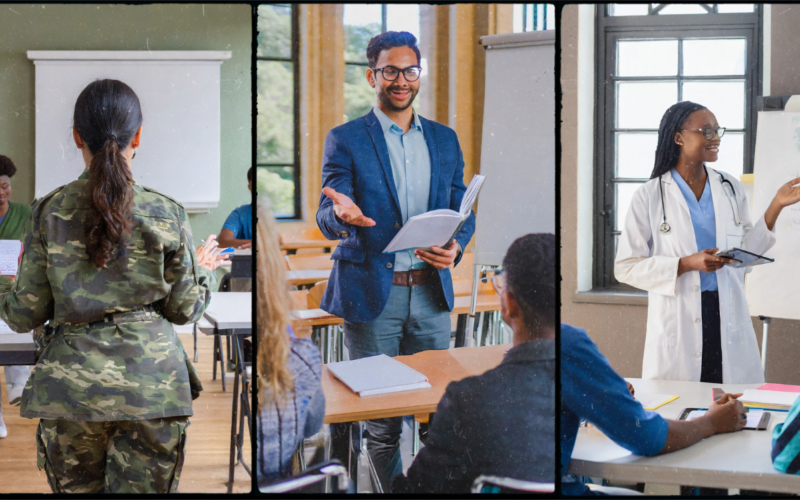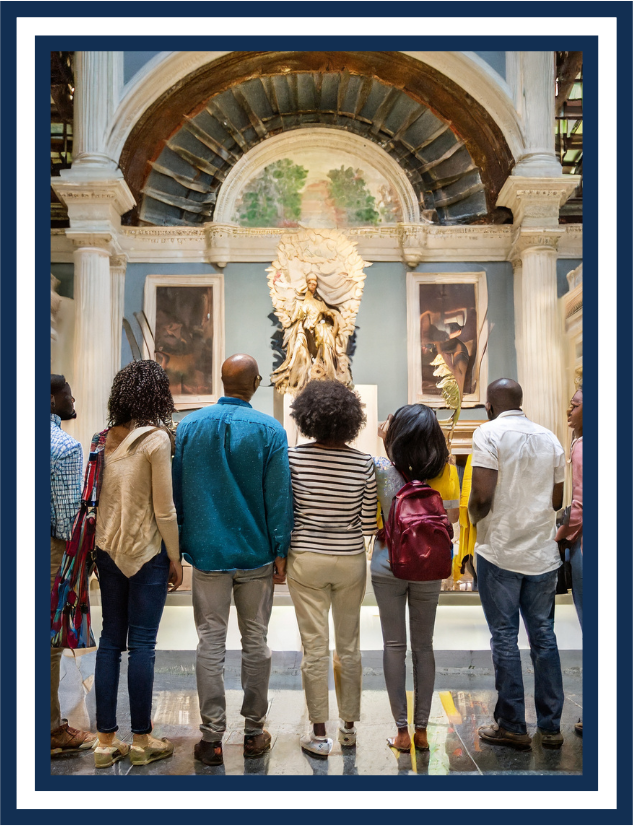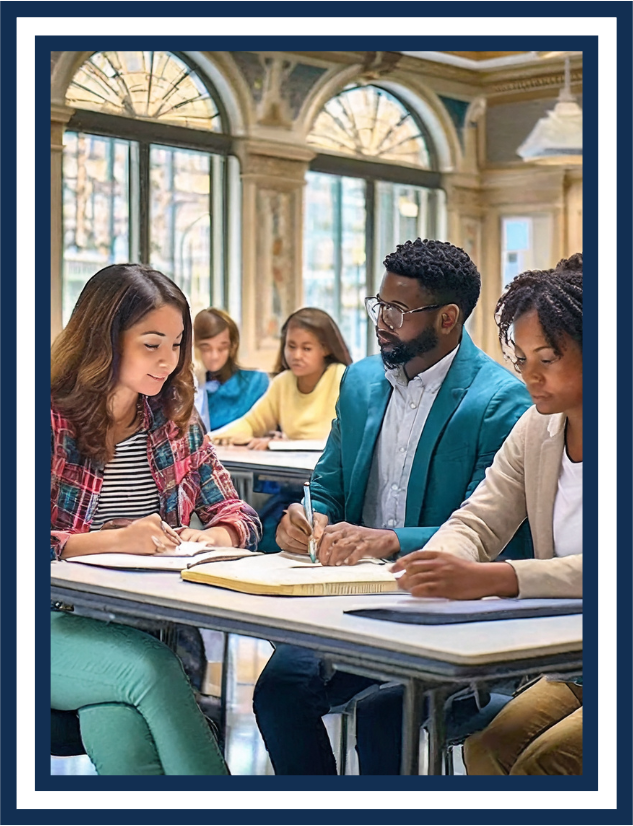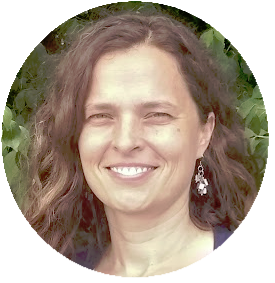Strategies and Tips for a Productive Citizenship Preparation Class

by Virginia Showalter, Skyline Literacy Tutor Trainer, with input from citizenship tutors David Cockley and T. W. Johnson
Since 2007, Skyline Literacy in Harrisonburg has been offering citizenship preparation classes for immigrants in the community who are planning to become naturalized United States (U.S.) citizens. While extremely rewarding, this process can be challenging for adult learners who are juggling many responsibilities, have limited English proficiency, and have a narrow timeframe to learn the material needed for the naturalization interview/exam. Over the course of 10 weeks (two classes per week), Skyline Literacy learners study the required U.S. civics information, practice English reading/writing skills, and prepare by answering the naturalization application questions that will be reviewed orally during the interview. It’s a big task! Skyline Literacy staff and volunteer tutors have developed multiple strategies to help students learn the pertinent information and practice these necessary skills:
1. Focus on material that is covered in the citizenship test and interview.
Students who participate in our classes come for one goal: to pass the citizenship test. So it is therefore the tutor’s goal to help learners do that in the most efficient and effective way possible. While it may be uncomfortable to “teach to the test” and leave out deeper issues/details in American history, it is imperative that tutors remember their students’ goal and the limited time students have to achieve it. Because of their limited English proficiency (beginner to intermediate), it is already a challenge for many learners to understand concepts such as the Emancipation Proclamation or Constitutional amendments, not to mention the very complex questions that are included in the naturalization application/interview, e.g.: “Have you ever been a member of, or in any way associated with a) the Communist Party, b) a totalitarian party, or c) a terrorist organization?” For this reason, tutors must focus on covering the complex concepts included in the interview/test and avoid discussing information or topics that are not relevant.
2. Bring the material to life by finding interesting ways to interact with the information.

Skyline Literacy tutors do this in a multitude of ways. Tutors show maps of the United States to learn the required information about U.S. geography. They look at photographs included in our citizenship textbook, Civics and Literacy by Lynne Weintraub, as well as supplemental photographs of our senators/representatives. With intermediate students who can handle slightly deeper conversations, seasoned tutor David Cockley encourages class discussion about current events and how those events interact with the material they are learning. Another longtime Skyline tutor, T. W. Johnson, describes a class activity in which his students act out how a bill becomes a law, with different students acting as the President, House, Senate, etc. Learners go on one field trip each quarter, often to a local museum that features the history of the Shenandoah Valley, which includes Civil War information. Students hear a recording of the National Anthem (YouTube) and watch a video of schoolchildren reciting the Pledge of Allegiance. Students practice interview skills such as eye contact, proper attire, posture, and how to ask for clarification, which are skills that are not only helpful for their citizenship interview, but also for workplace preparation. Activities such as these help students with diverse learning styles and language abilities to understand and retain these complex topics.
3. Repetition and review are keys to retaining the information.
Tutors devote time every class session to review what was learned in previous lessons. They highlight questions that students get wrong and come back to those same questions at the end of class. Halfway through the 10-week session, an entire class period is devoted to review of what was studied in the first five weeks. Again, at the end of the 10-week class is a cumulative review class. Games (BINGO or Kahoot!, for example) help to review important dates, people, and vocabulary in a fun and engaging manner. Tutors encourage students to practice the 100 civics questions at home by downloading apps available on the USCIS website or other sites like USALearns. Additionally, each student is offered a one-on-one mock interview at the end of the 10 weeks as a tool to evaluate their readiness for the naturalization test/interview. Some students decide that they need to take the citizenship class multiple times in order to feel confident that they can pass the interview. Students, too, appreciate the emphasis on review and repetition. Former Skyline Literacy learner (now a U.S. citizen), Kishwar Rashid said, “The teachers are helpful and supportive, and they explain things two or three times to help you understand. I knew that if I asked questions, they would respond, and if I needed something, they would help.”
4. Maintain a low student/teacher ratio.

As much as possible, Skyline Literacy aims for small classes (10 learners or fewer) with multiple tutors in the classroom. This is possible because of dedicated volunteer tutors, some who come from the Harrisonburg community and others who are university students choosing to complete required community service learning hours with Skyline Literacy. Having multiple tutors in the classroom allows more individualized attention for students who struggle to retain information or who have low-literacy levels and need more assistance.
“The teachers are helpful and supportive, and they explain things two or three times to help you understand. I knew that if I asked questions, they would respond, and if I needed something, they would help.” —Kishwar Rashid, former Skyline Literacy learner (now a U.S. citizen)
Becoming a naturalized U.S. citizen is a meaningful and significant experience for many immigrants in our community. At Skyline Literacy, we appreciate the opportunity to support individuals who are in this process and cheer them on towards achieving their goal!
 Virginia Showalter is the Family Literacy Program Manager and Citizenship Tutor Trainer for Skyline Literacy. A native of the Shenandoah Valley, she appreciates the ways that the Harrisonburg community continues to become more diverse each year. She graduated from Eastern Mennonite University with a degree in elementary education and minors in teaching English to speakers of other languages (TESOL) and Spanish. Her professional experience has been varied, from teaching English to adult learners in numerous settings to working as an immigration paralegal to being a case manager with migrant farmworkers.
Virginia Showalter is the Family Literacy Program Manager and Citizenship Tutor Trainer for Skyline Literacy. A native of the Shenandoah Valley, she appreciates the ways that the Harrisonburg community continues to become more diverse each year. She graduated from Eastern Mennonite University with a degree in elementary education and minors in teaching English to speakers of other languages (TESOL) and Spanish. Her professional experience has been varied, from teaching English to adult learners in numerous settings to working as an immigration paralegal to being a case manager with migrant farmworkers.